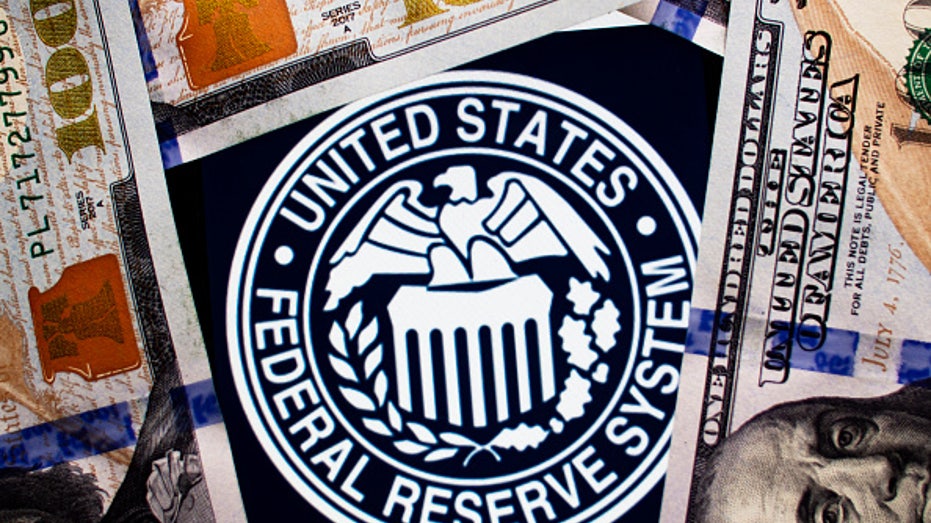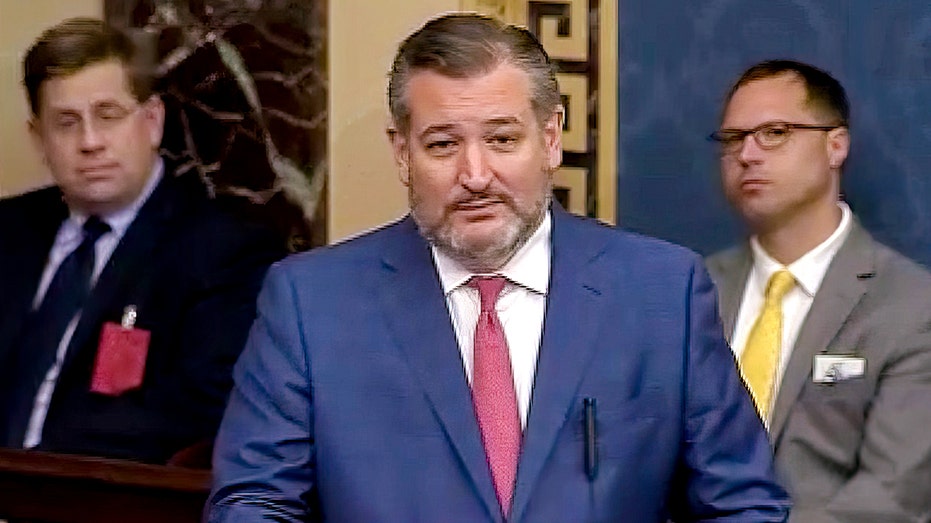Biden administration moves on taxing, regulating cryptocurrency
Biden administration has targeted digital assets in its federal budget proposal and separate executive order
Can stablecoins and CBDCs work together?
Former CFTC chairman Chris Giancarlo and FOX Business senior correspondent Charlie Gasparino discuss the future of a digital assets on 'The Claman Countdown.'
The Washington adage, "If it moves, tax it, and if it keeps moving, regulate it," appears to apply to cryptocurrency, which has been on the move in popularity, reaching a market cap of $3 trillion, up from $14 billion five years before, according to both the White House and the Treasury Department.
In the last month, the Biden administration has targeted digital assets in its federal budget proposal and separate executive order. The largest cryptocurrencies are Bitcoin and Ethereum, but others have gained ground among investors.
The Biden administration’s proposed budget for fiscal year 2023 would increase IRS reporting requirements on digital assets and change tax laws for cryptocurrency dealers and traders to net an estimated $11 billion in revenue from 2023 through 2032.
"Our regulatory frameworks should be designed to support responsible innovation while managing risks, especially those that could disrupt the financial system and economy," Treasury Secretary Janet Yellen said Thursday during a speech on digital assets at American University. "As banks and other traditional financial firms become more involved in digital asset markets, regulatory frameworks will need to appropriately reflect the risks of these new activities and new types of intermediaries, such as digital asset exchanges and other digital native intermediaries, should be subject to appropriate forms of oversight."
Biden issued an executive order in March directing the Treasury Department and other agencies to develop recommendations for regulating digital assets to prevent systemic financial risks, and to explore establishing a potential U.S. Central Bank for Digital Currency if the issuance is deemed in the national interest.

While Central Bank Digital Currencies (CBDCs) stem from cryptocurrencies, they are not cryptocurrencies because rather than being decentralized, they are controlled by a central bank. (Igor Golovniov/SOPA Images/LightRocket via Getty Image / Getty Images)
"Some have also suggested that the introduction of a Central Bank Digital Currency, or CBDC, could contribute to a more efficient payment system," Yellen said. "As a liability of the central bank, a CBDC could become a form of trusted money comparable to physical cash, but potentially offering some of the projected benefits of digital assets."
Thanks to a provision in the bipartisan infrastructure legislation last year, cryptocurrency exchanges, and entrepreneurs already face tougher reporting requirements than other financial assets, argued John Berlau, a senior fellow at the Competitive Enterprise Institute. The infrastructure act expanded the definitions of "broker" and "digital assets." He contends the $11 billion revenue estimate, and broad definitions would prompt the IRS to be more aggressive in going after the industry.
BIDEN'S PROPOSAL FOR A NEW DIGITAL CURRENCY IS AN ATTACK ON LIBERTY
"The Biden administration’s big-dollar revenue estimate that includes the contentious crypto tax reporting provisions of the infrastructure law may send signals to the IRS to go after miners, software developers and other small cryptocurrency entrepreneurs," Berlau told Fox News. "This would go against bipartisan sentiment in Congress that these individuals and firms should not be subject to burdensome tax reporting rules."
Berlau said Congress should attach language to narrow the infrastructure law’s rules on digital assets "to any budget bill to stop this pending regulatory onslaught on small crypto entrepreneurs."
The bipartisan bill he referenced by Reps. Tim Ryan, D-Ohio, and Patrick McHenry, R-N.C., would narrowly define a "broker" to ensure those only in the business of brokering are required to report, and clarify what a broker should report and congressional intent in defining a digital asset.

Sen. Ted Cruz (R-Texas) went viral on Monday, Aug. 9 2021, after giving a speech on the Senate floor critical of his colleagues' attempt to add a provision inside the $1 trillion bipartisan infrastructure bill that would put in place tougher tax enfo (CSPAN)
The Biden administration is very likely to miss the $11 billion estimate, said Liz Mair, a Republican political consultant who describes herself as a "recovering" banking and mergers and acquisitions lawyer who is familiar with financial services and tax policy.
FEDERAL RESERVE TO STEP UP RESEARCH, PUBLIC ENGAGEMENT ON DIGITAL CURRENCIES
"It seems glaringly obvious from events over the last few years that few decision-makers in Washington, D.C., really get crypto, or much in the realm of tech and innovation generally. That makes me skeptical that this proposal will be a well-reasoned one — or that when Congress goes to look at it, that they will do anything particularly smart and well-thought-out with it," Mair told Fox News regarding Biden’s tax proposal.
CLICK HERE TO READ MORE FROM FOX BUSINESS
"The difference between crypto investors and your average, traditional asset investor — and what might make this scheme doomed to fail if this is where Biden thinks his extra $11 billion or any big portion of it is coming from — is that crypto investors seem to show a much greater disposition to voting with their feet and getting out of tax nets if they don't like tax regimes," Mair later added.




















